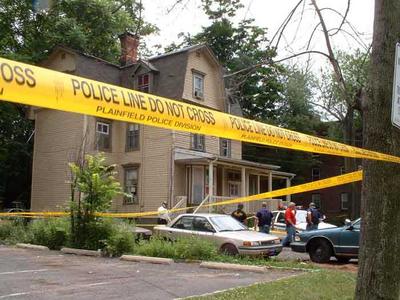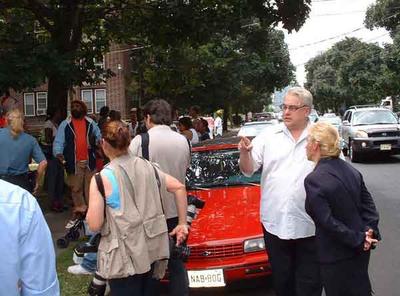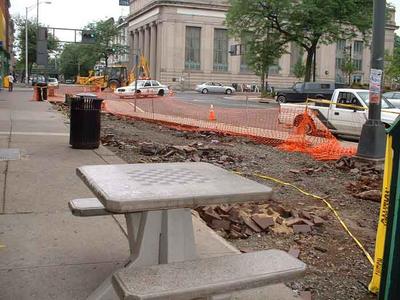Homicide No. 10: Homeless Woman No. 3
PLAINFIELD (6/29/05) - The city's latest homicide victim was found Wednesday morning, June 29, in a yard behind 144 East Seventh Street, between Park and Watchung Avenues, barely a block from City Hall.
The victim was identified as Manita Andrews, 41. She was the third woman killed within seven weeks in the city. Police had little to say, but onlookers said her body was found naked and bound.
Relatives and friends gathered in front of the multi-family home as police probed the back yard, which had numerous vehicles and large piles of dirt in it. Witnesses said the investigation began Wednesday morning, but it was only in the afternoon that police put up a blue tarpaulin where the body was found. The body was removed and carried on a gurney to the medical examiner's car at about 2:45 p.m.
Police also refused to say why they investigated an office building on the same block where a male friend of the victim lived. PHOTO: Councilman Ray Blanco and Flor Gonzalez of the Latin American Coalition await further information about the murder victim.
PHOTO: Councilman Ray Blanco and Flor Gonzalez of the Latin American Coalition await further information about the murder victim.
The two other women found murdered recently in Plainfield were Pebbles Cade, a homeless woman whose body was found in a trailer at the site of the new senior citizens' center in the 300 block of East Front Street, and Carolyn Robinson, who according to published reports was beaten to death June 9 in a basement in the 700 block of East Front Street.
--Bernice Paglia
KEYWORDS: Murder, homeless, police




